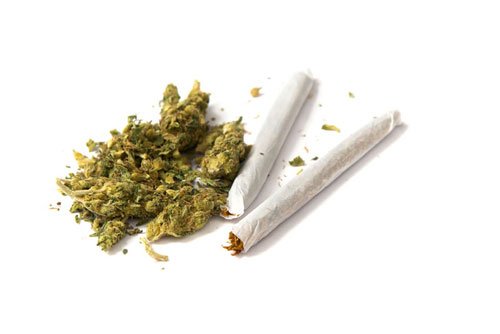
1. What is Marijuana?
"Marijuana" refers to dried flowers and leaves of some strains of the cannabis hemp plant, which contain various quantities of the non-narcotic chemical THC in various quantities. When smoked or eaten, it produces the feeling of being "high," which lasts a few hours. Different strains of this herb produce their own sensual effects, ranging from sedative to stimulant.
2. Who Uses Marijuana?
There is no simple profile of a typical marijuana user. It's been used for thousands of years for medical, social and religious reasons as well as for relaxation. Several of our Presidents farmed hemp, and some are believed to have smoked it. One out of every five Americans in all walks of life say they have tried it, and it is still very popular.
3. How Long Have People Been Using Marijuana?
Since Biblical times. This practice was widely accepted in America,as well, until the orchestrated campaign of the 1930s led to disinformation, public hysteria, and the first American laws against using it.
4. Is Marijuana Addictive?
No, it is not. Most users are moderate consumers who only smoke it socially or occasionally to relax. We now know that 10% of our population have "addictive personalities," and they are no more nor less likely to abuse cannabis than anything else. On a relative scale, marijuana is less habit-forming than either sugar or chocolate. Sociologists report a general pattern of marijuana usage that peaks in the early adult years, followed by a period of levelling off, and finally a gradual reduction in use.
5. Has Anyone Ever Died From Smoking Marijuana?
No; not even once. Judge Francis Young studied all the evidence in 1988, and ruled that "marijuana is far safer than many foods we commonly consume." The federal agency NIDA says that autopsies show 75 people per year are high on marijuana when they die, but this does not mean marijuana is a factor in any of their deaths. This chart shows the number of deaths from selected substances in a typical year:
Tobacco....................... 340,000-395,000
Alcohol (excluding crime/accidents) ......................................... 125,000 +
Drug Overdose (prescription.............. 14,000-27,000
Drug Overdose ............................ 3,800-5,200
Marijuana ............................................. 0
*Source: U.S. government Bureau of Mortality Statistics, 1987.
6. Does It Lead to Hard Drugs?
No. Although people who abuse drugs often smoke marijuana also, the National Academy of Science reports that "Legal drugs for adults, such as alcohol and tobacco, ... precede the use of all illicit drugs." Tobacco is known as "the gateway drug."
7. Does It Cause Violence? No, just the opposite.
The only crime most marijuana users commit is using marijuana. The U.S. Shafer Commission report was the most comprehensive study ever undertaken on the subject. It found that marijuana smokers "tend to be under-represented" in violence and in crime, "especially when compared to users of alcohol, amphetamines and barbiturates." The simple fact is that marijuana does not change your basic personality. The federal government reports that over 70 million Americans have smoked it ... probably including some of the nicest people you know.
8. How Does Marijuana Affect Your Health?
A Harvard University medical team in 1987 found that "dangerous physical reactions to marijuana are almost unknown." All smoke is unhealthy, but marijuana is safer than tobacco, and people tend to smoke less of it. That risk can be eliminated by eating the plant instead of smoking it or it can be reduced by using water pipes to smoke smaller amounts of more potent marijuana. Moreover, cannabis is a proven medicinal herb with hundreds of modern therapeutic uses in treating ailments from stress to arthritis to glaucoma to asthma to cancer therapy, to AIDS, and more.
9. What About All Those Scary Stories and Reports?
Most sensational claims of health risks cite no studies or sources at all. Others rely on a handful of inconclusive or flawed reports.After 20 years study, the California Attorney General's panel concluded in 1989 that "an objective consideration shows that marijuana is responsible for less damage to the individual and society than alcohol and cigarettes."
10. What Should We Do?
American taxpayers have funded many studies on this very point, and every independent government panel on marijuana has opposed the jailing of marijuana smokers.Most have urged lawmakers to re-legalize and tax use of this herb by responsible adults, with age limits and regulations like those on alcohol and tobacco. Tell your elected leaders to free up our police and resources to combat violent crime and to honor our national pledge and comniittment to "liberty and justice for all" by ending marijuana prohibition.
